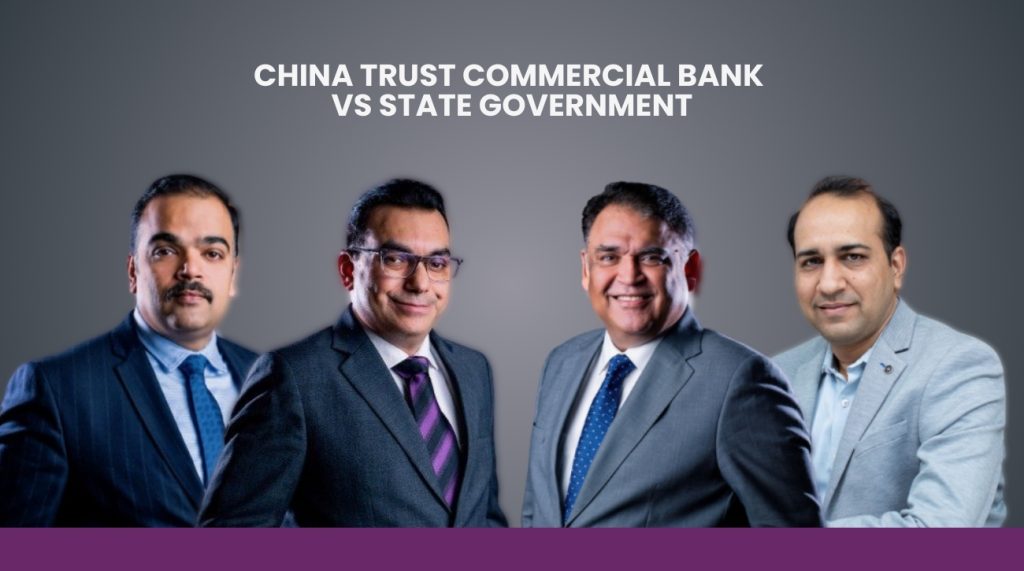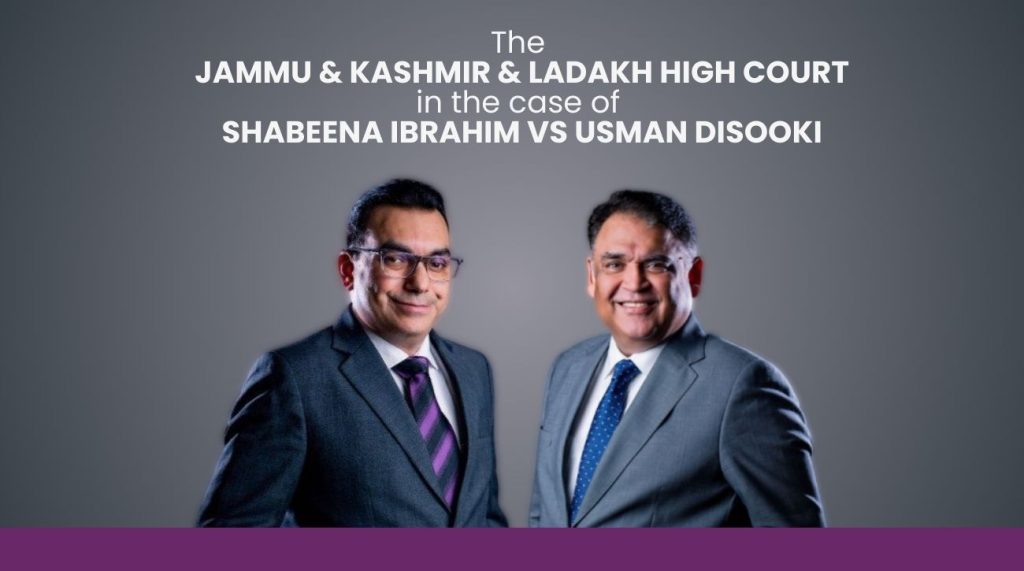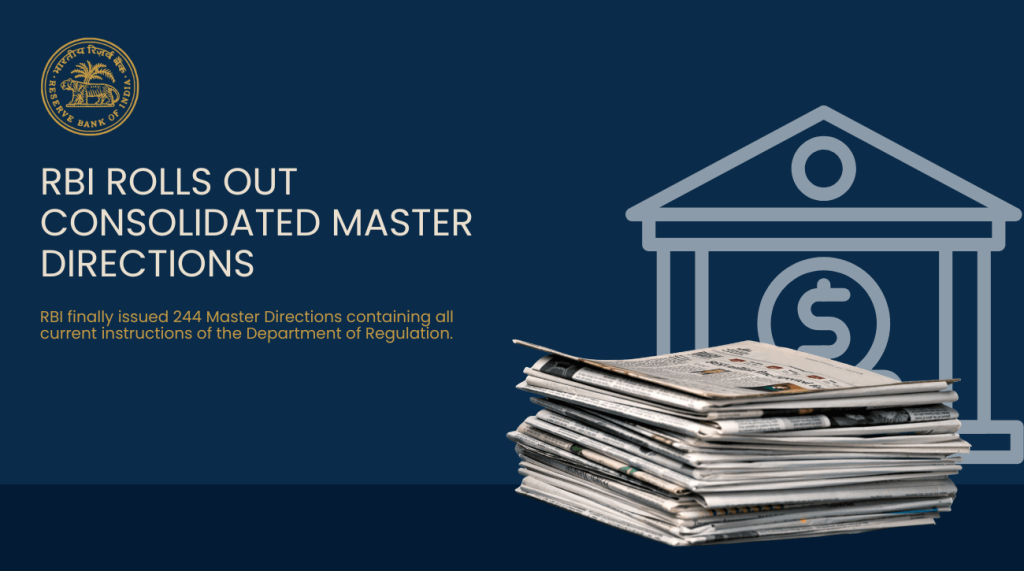Legal Updates (Oct 6– Oct 11, 2025)
A cheque dishonour complaint would be maintainable against a trustee who has signed a cheque on the Trust’s behalf, without arraying the Trust as an accused
The Supreme Court in the case of Sankar Padam Thapa vs Vijaykumar Dineshchandra Agarwal [SLP (Criminal No. 4459 of 2023] dated October 09, 2025, has held that when a cause of action arises due to an alleged dishonour of a cheque and a complaint is initiated under the Negotiable Instruments Act (NI Act), the same is maintainable against the Trustee who has signed the cheque, without the requirement to array the Trust also as an accused.
The Court clarified that a cheque dishonour complaint would be maintainable against a trustee who has signed a cheque on the Trust’s behalf, without arraying the Trust as an accused. This is so because a Trust is not a juristic person, can neither sue nor be sued; therefore, trustees responsible for the day-to-day affairs of the Trust would be held liable, particularly the one who signed the cheque.
The Court therefore concluded that the person who signs the cheque is clearly responsible for the act and can be prosecuted without the trust being separately arraigned. Since the Respondent was the Chairman and Authorised Signatory of the Trust who personally signed the cheque, he was prima facie responsible for the act of issuing the cheque. making him liable without the need for the Trust to be arraigned as an accused. Reference was made to the decisions in the case of SMS Pharmaceuticals Ltd. vs. Neeta Bhalla [(2005) 8 SCC 89] and KK Ahuja vs. VK Vora [(2009) 10 SCC 48].
Approval of the resolution plan under IBC does not extinguish the criminal liability of the directors under Section 138 of the NI Act
The Bombay High Court in the case of Ortho Relief Hospital and Research vs Anand Distilleries [Criminal Petition No. 251 of 2025] dated October 01, 2025, has restored the proceedings under Section 138 of the Negotiable Instruments Act, 1881, holding that the directors being natural person are to be distinguished from the company being an artificial person, and therefore, they cannot escape their liability merely because insolvency proceedings were initiated earlier against the company.
The Court reiterated that Directors or Signatories remain personally liable under Section 138 of the NI Act, and even if the company’s debt is resolved or liquidation is completed, the personal penal liability continues to remain. Reference was made to the decisions in the case of Rakesh Bhanot vs Gurdas Agro Private Limited [(2025) 6 SCC 781], P. Mohanraj and others vs Shah Brothers Ispat Pvt Ltd. [(2021) 6 SCC 258], and Ajay Kumar Radheyshyam Goenka vs Tourism Finance Corporation of India Ltd. [(2023) 10 SCC 545].
The Court explained that the NI Act proceedings are penal, not recovery proceedings, whereas Section 138 aims to uphold the integrity of commercial transactions, and not to recover debt. The IBC and NI Act operate in different spheres, wherein the IBC provides financial resolution for companies, and the NI Act imposes penal liability for cheque dishonour. Further, the moratorium under Section 14 of the IBC applies only to the corporate debtor, not to natural persons, i.e., the directors, and Section 32A of the IBC protects only the corporate debtor (post-resolution), not the directors responsible for the conduct of the company.
The Court observed that Section 138 NI Act proceedings are not meant for the recovery of money, and directors and signatories of a company remain personally liable even if the company’s debt is resolved under the IBC. Further, approval of a resolution plan does not extinguish or discharge their criminal liability, and such proceedings aim to preserve the integrity of commercial transactions rather than merely compensate the complainant. The Court also concluded that while Section 32A of the IBC, which protects the corporate debtor, does not extend that protection to individuals who were in charge of or responsible for the conduct of the company’s business. Also, the moratorium under Section 14 IBC does not cover criminal proceedings under the NI Act.
The limitation period for filing a written statement under Order VIII Rule 1 of the CPC begins from the date of service of summons along with a copy of the plaint, and not from the date of filing of the Vakalatnama by the defendant. Filing of Vakalatnama by Defendant’s counsel is not deemed service of summons.
The Bombay High Court in the case of Gautam Dham Co-operative Housing Society Ltd. vs. Funds and Properties of Parsi Panchayat, Bombay [Interim Application No. 4761 of 2025 in Suit No. 393 of 2022] dated September 20, 2025, has held that the limitation period for filing a written statement under Order VIII Rule 1 of the Civil Procedure Code, 1908 (CPC) begins from the date of service of summons along with a copy of the plaint, and not from the date of filing of the Vakalatnama by the defendant.
The Court emphasised that the responsibility to serve the plaint rests upon the plaintiff and that the defendant cannot be expected to apply to the court office to obtain a copy of the plaint merely because a Vakalatnama has been filed earlier. The Court therefore held that Rule 84 of the Bombay High Court (Original Side) Rules, 1980, merely prescribes a method of proving service where the fact of service is in dispute, and cannot be read to mean that filing of a Vakalatnama amounts to deemed service of summons with plaint.
The Court observed that the filing of Vakalatnama can be after the service of the summons; however, if a Vakalatnama is filed before the service of the writ of summons, the same cannot go against the Defendant for computing the starting period of limitation for the purpose of Order VIII Rule 1. The Court further held that the 75-day delay caused by inadvertence in the office of the advocate constituted “sufficient cause”, and remarked that litigants should not be penalised for inadvertent mistakes of their advocates, especially where the delay is not inordinate and no prejudice is caused.
Mere allegations of fraud and lodging of an FIR shall not bar reference of the dispute to arbitration, if no chargesheet is filed and criminal proceedings have not started
The Bombay High Court in the case of Mangal Credit and Fincorp Limited vs Ulka Chandrshekhar Nair [Arbitration Application (L) No. 29984 of 2023] dated October 01, 2025, has held that the disputes are still arbitrable under the Arbitration and Conciliation Act, 1996 (Arbitration Act) even though allegations of fraud and forgery were raised, if there was no progress in the criminal case.
The court observed that it is an admitted position that an FIR was lodged, but no chargesheet has been filed to date, and criminal proceedings have also not been started. Therefore, under such circumstances, it would be imprudent and speculative to accept the contention that merely because the FIR was registered, the parties must not be referred to the arbitration, especially when the said criminal case was filed against the partner of the Applicant, not directly against the Applicant.
The Court further held that merely because the Respondent has chosen to attack the Mortgage Deeds, which contain the arbitration clause inter alia on the ground of criminality, forgery, fraud, and pending FIR since 2023, the contractual obligations flowing from the said Mortgage Deeds cannot be disowned by the Respondent and discarded at this juncture. The Respondent’s allegation of not being a signatory or being unaware of these deeds squarely falls within the scope of arbitrability under the Arbitration Act.
The court also observed that mere pendency of proceedings before the Debt Recovery Tribunal does not ipso facto bar the reference of a dispute to arbitration under section 11 of the Arbitration Act. It further observed that there is no legal bar preventing an arbitrator from deciding such questions, including challenges to the very arbitrability of the dispute.
Mere attainment of a dominant position does not amount to abuse of such position and hence not a violation of Section 4 of the Competition Act, in the absence of discriminatory conduct
The Competition Commission of India (CCI) in the case of Liberty Infospace Pvt Ltd. v Alphabet Inc. [Case No. 07 of 2025] dated October 06, 2025, has ruled that Google did not abuse its dominant position by terminating the developer account of Liberty Infospace on the Google Play Store, after finding no prima facie violation under Section 4 of the Competition Act, 2002 relating of abuse of dominant position or indulgence in discriminatory conduct.
The CCI found that the termination essentially removed Liberty’s HRMS app, EasyDo Tasks-HRMS Payroll AI, from the Play Store, where it had over 16,000 downloads, citing prior violations by associated previously terminated Google Play Developer Accounts. This was opposed by the informant, alleging discrimination, citing additional redressal mechanisms available to EU developers under the Digital Services Act.
The CCI reaffirmed that Google holds a dominant position in this market but did not abuse this dominance. The Commission also accepted Google’s rationale for not disclosing detailed enforcement mechanisms, noting that transparency must be balanced against the risk of bad actors gaming the system, and stated that Google’s explanation in respect of its ‘relational ban policy’, reasons behind not giving detailed disclosures, rationale for termination, and lack of incentive to terminate authentic apps appear to be reasonable.
The terms of the Google Play Developer Distribution Agreement (GPDDA), which Liberty had challenged as one-sided and unfair, were found to be standard-form contracts applied uniformly across developers. The Commission noted that Clause 10.3 of the agreement permits immediate termination in cases of serious violations, including those involving associated accounts, and therefore, dismissed the case under Section 26(2) of the Competition Act, 2002.
A transactional audit report alone cannot be conclusive proof of fraudulent trading under Section 66 of the IBC
The NCLAT, New Delhi, in the case of Nalinesh Kumar Paurush v. Shree Vishvamurte Tradinvest Pvt Ltd. [Company Appeal (AT) (Insolvency) No. 346 of 2024] dated September 25, 2025, has held that a transactional audit report alone cannot be conclusive proof of fraudulent trading under section 66 of the Insolvency and Bankruptcy Code, 2016 (IBC). The Tribunal observed that every commercial transaction that results in ‘loss’ may not be labelled as fraudulent, and the failure to exercise due diligence may not be sufficient to label a transaction fraudulent for the purpose of section 66 IBC.
The NCLAT also observed from a combined reading of the clauses that at the time of making the transaction, the suspended director must know that there is no reasonable prospect of avoiding the CIRP process, and they failed in exercising due diligence to minimize the potential loss. The Tribunal further observed that in the absence of any direct evidence, the purchase of shares of unlisted companies cannot be considered to be an act of fraud.



